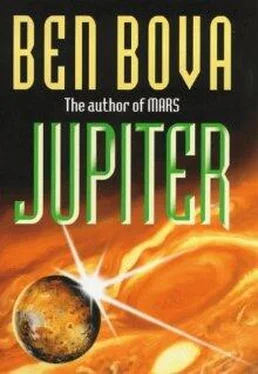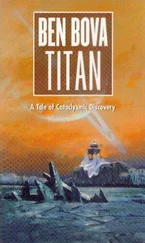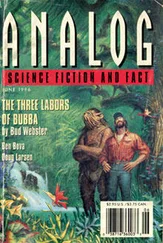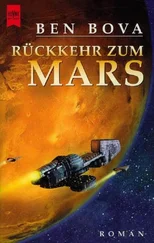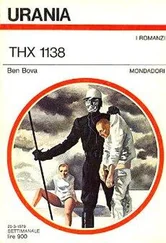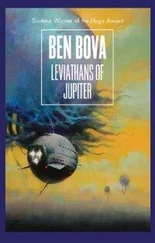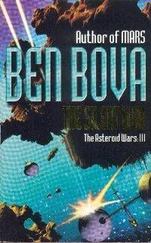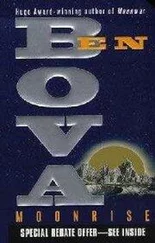Ben Bova - Jupiter
Здесь есть возможность читать онлайн «Ben Bova - Jupiter» весь текст электронной книги совершенно бесплатно (целиком полную версию без сокращений). В некоторых случаях можно слушать аудио, скачать через торрент в формате fb2 и присутствует краткое содержание. Год выпуска: 2000, ISBN: 2000, Издательство: Hodder & Stoughton, Жанр: Космическая фантастика, на английском языке. Описание произведения, (предисловие) а так же отзывы посетителей доступны на портале библиотеки ЛибКат.
- Название:Jupiter
- Автор:
- Издательство:Hodder & Stoughton
- Жанр:
- Год:2000
- ISBN:0-340-76764-2
- Рейтинг книги:4 / 5. Голосов: 1
-
Избранное:Добавить в избранное
- Отзывы:
-
Ваша оценка:
- 80
- 1
- 2
- 3
- 4
- 5
Jupiter: краткое содержание, описание и аннотация
Предлагаем к чтению аннотацию, описание, краткое содержание или предисловие (зависит от того, что написал сам автор книги «Jupiter»). Если вы не нашли необходимую информацию о книге — напишите в комментариях, мы постараемся отыскать её.
Jupiter — читать онлайн бесплатно полную книгу (весь текст) целиком
Ниже представлен текст книги, разбитый по страницам. Система сохранения места последней прочитанной страницы, позволяет с удобством читать онлайн бесплатно книгу «Jupiter», без необходимости каждый раз заново искать на чём Вы остановились. Поставьте закладку, и сможете в любой момент перейти на страницу, на которой закончили чтение.
Интервал:
Закладка:
Yet Jupiter is composed mainly of the lightest elements, hydrogen and helium, more like a star than a planet. All that size and mass, yet Jupiter spins on its axis in less than ten hours, so fast that the planet is clearly not spherical: Its poles are noticeably flattened. Jupiter looks like a big, colorfully striped beach ball that’s squashed down as if some invisible child were sitting on it.
Spinning that fast, Jupiter’s deep, deep atmosphere is swirled into bands and ribbons of multihued clouds: pale yellow, saffron orange, white, tawny yellow-brown, dark brown, bluish, pink and red. Titanic winds push the clouds across the face of Jupiter at hundreds of kilometers per hour. What gives those clouds their colors? What lies beneath them? For more than a century astronomers had cautiously sent probes into the Jovian atmosphere. They barely penetrated the cloud tops before being crushed by overwhelming pressure.
But the inquisitive scientists from Earth persisted and gradually learned that some fifty thousand kilometers—nearly four times Earth’s diameter— beneath those clouds lies that boundless ocean of water, an ocean almost eleven times wider than the entire Earth and some five thousand kilometers deep. Heavily laced with ammonia and sulfur compounds, highly acidic, it is still an ocean of water, and everywhere else in the solar system where there is water, life exists.
Is there life in Jupiter’s vast, deep ocean?
FREIGHTER ORAL ROBERTS
“You mean your wife’s maiden name is Gold, too?” asked Raoul Tavalera.
Grant nodded. “That’s right.”
Same as the research station?”
Tavalera had a long, horsy face with teeth that seemed a couple of sizes too big and watery eyes that bulged slightly beneath heavy black brows. It all combined to give him a sorrowful, morose look. His thick curly hair was pulled back into a long ponytail, at the unbending insistence of the freighter’s dour captain.
“It’s just a coincidence,” Grant said. “There’s no relation. The station is named after Thomas Gold; he was a twentieth-century astronomer. British, I think”
“Prob’ly a Jew,” said Tavalera.
Grant felt his brows hike up.
“They always change their names, y’know, so nobody can catch they’re Jews. He was prob’ly Goldberg or Goldstein, something like that.”
Grant started to reply but held back. He and Tavalera were sitting at the only table in the dingy, cramped galley of the freighter. Tavalera was a newly graduated student, too, an engineer who was going to work out his two-year Public Service commitment with the scoopship operations at Jupiter. Except for the two of them the galley was empty; the crew were all at their workstations. The food and drink dispensers were cold and empty at this hour; the metal bulkheads and flooring all looked scuffed, worn, old and hard used.
Grant had gone to the galley to take a brief break from his ongoing studies of the giant planet. He spent most of his time on the tedious journey out to Research Station Gold learning about Jupiter and its retinue of moons, catching up on what the researchers out there were discovering.
Tavalera had wandered into the galley a few moments after Grant came in, apparently with nothing better to do than strike up a conversation.
Is he implying that Marjorie is Jewish? Grant asked himself. Grant had thought it was a pleasant coincidence that the research station they were heading for bore the same name as his wife. He knew there was no relation, yet he thought the coincidence was a good omen, nevertheless. Not that he believed in omens. That would be superstition, practically sinful. But he needed something to buoy him up during this long, slow, utterly boring journey out to the Jupiter system.
Grant had thought that he’d be whisked to Jupiter aboard one of the new fusion torch ships, accelerating most of the way so that the journey took only a few weeks. Not so. Grad students traveled by the cheapest means available, which meant that he and Tavalera were stuck in this clunker of a freighter for the better part of a year. What really stunned Grant was the realization that the transit time did not count toward his Public Service.
“Public Service,” said the peevish pinch-faced New Morality clerk when he registered for the journey, “means just what the words say: service to the public. Riding in a spacecraft is not service time, it’s leisure time.”
Grant argued the point all the way up to the national office, and all he got for his efforts was a reputation as a sorehead. Not even prayer helped. Travel was leisure time, according to the regulations.
Some leisure, Grant thought. Roberts was old and slow, dreary and dismal. Its habitation unit rotated on a long tether around its massive cargo module, so that the crew and passengers had a simulated gravity about half that of Earth’s. Grant’s and Tavalera’s quarters consisted of a single spare compartment the dimensions of a coffin, with their two bunks shoehorned in one atop the other, with barely ten centimeters between Grant’s nose and Tavalera’s sagging mattress.
The depressing, decrepit ore boat didn’t even have a niche anywhere aboard it to serve as a chapel. Grant had to do his sabbath worship in the scuffed, cheerless galley, using videos of his father’s services and hoping that neither Tavalera nor any of the crew would break in on his observances.
The grumpy gray-haired captain snapped at Grant whenever they met. “Just keep out of the way, brightboy!” were the kindest words Grant had heard out of her. The rest of the crew—three men and three women—ignored their passengers entirely. All of them used language that would have brought them up before the local decency committee back home.
So Grant composed long, lonely video messages back to Marjorie, wherever she was in Uganda or Brazil or the ruins of Cambodia. Real-time videophoning was impossible: The distance between them as Roberts cruised out toward Jupiter created an ever-lengthening time lag that defeated any attempt at true conversation. She sent messages back to him, not as often as he did, but of course she was much busier. She always appeared cheerful, hopeful. She ended each message by mentioning the number of hours until Grant would return to Earth.
“It’s thirty-two thousand, one hundred, and seventeen hours until we’re together again, darling,” she would say. “And every second brings you closer to me.”
Every time he thought about the number, Grant wanted to break down and cry.
He plunged into his studies of Jupiter, sitting for hours on end in the freighter’s cramped little wardroom, nothing more really than a metal-walled compartment barely big enough to accommodate a bolted-down table and four of the most uncomfortable plastic chairs in the solar system. With his handheld computer linked to the display screen on the metal bulkhead, Grant spent most of his time in the dingy wardroom, leaving the claustrophobic sleeping compartment to Tavalera except when he became too stupefyingly exhausted to keep his eyes open.
Crew members would come in from time to time, but for the most part they left Grant to his studies without a word. Only the captain interrupted him, now and then, grumbling about being forced to carry freeloading student “bright-boys.” To her, Grant was excess baggage, using up ship’s air and food for no good purpose. She tolerated Tavalera better; at least he was an engineer, he was going to do something worthwhile out in the Jupiter system. As far as she was concerned, Grant was nothing more than a would-be scientist, a brightboy who was going to play around in a research station instead of doing real work.
Grant ignored the captain’s hostility as much as he could and pushed doggedly ahead with his studies. He wanted to know all there was to know about Jupiter by the time he arrived at Station Gold. If he had to spend four years there, he intended to make them a productive four years, and not merely as a New Morality snoop, either.
Читать дальшеИнтервал:
Закладка:
Похожие книги на «Jupiter»
Представляем Вашему вниманию похожие книги на «Jupiter» списком для выбора. Мы отобрали схожую по названию и смыслу литературу в надежде предоставить читателям больше вариантов отыскать новые, интересные, ещё непрочитанные произведения.
Обсуждение, отзывы о книге «Jupiter» и просто собственные мнения читателей. Оставьте ваши комментарии, напишите, что Вы думаете о произведении, его смысле или главных героях. Укажите что конкретно понравилось, а что нет, и почему Вы так считаете.
